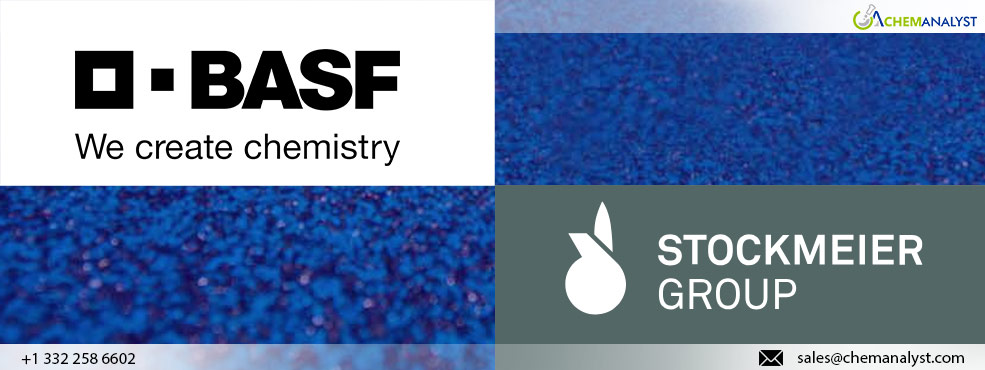Welcome To ChemAnalyst

BASF and STOCKMEIER Urethanes USA, Inc. have unveiled the start of commercial production for Stobielast® S polyurethane binders, specifically crafted for playground and recreational surfaces. These binders feature 100% domestically sourced Biomass Balance (BMB) Lupranate methylene diphenyl diisocyanate (MDI), produced at BASF’s Geismar, Louisiana facility. This launch represents a major milestone in the surfacing industry and highlights the commitment of both companies to advancing sustainability.
Using BMB Lupranate in the polyurethane production process allows STOCKMEIER Urethanes to implement more sustainable solutions without needing to reformulate, invest in new equipment, or alter the supply chain. Producing polyurethane binders using mass-balanced isocyanates aligns with STOCKMEIER Urethanes’ commitment to environmental stewardship and fostering a circular economy. The Stobielast S product line also features water-based and solvent-free coatings, GREENGUARD and GREENGUARD GOLD certifications, as well as USDA Certified Biobased labeled products.
“As playground season peaks across North America, we’re thrilled to partner with BASF and become the first U.S. polyurethane pour-in-place (PIP) binder manufacturer to establish a domestic collaboration utilizing BASF’s BMB isocyanates,” said Christian Martinkat, President and CEO of STOCKMEIER Urethanes USA, Inc. “This partnership is a major step forward in boosting product innovation and expanding manufacturing capabilities within the surfacing industry. By offering our high-quality PIP binders made with renewable feedstock-based MDI, we’re making significant progress toward enhancing the sustainability of our products and reducing STOCKMEIER Urethanes’ global carbon footprint.”
“We’re proud to collaborate with STOCKMEIER Urethanes as they scale up the sustainable production of PIP binders using our BMB MDI,” said Stefan Doerr, Senior Vice President, Monomers North America at BASF. “Our BMB MDI products are certified under globally recognized ISCC PLUS and REDcert² standards and are manufactured right here in the U.S.”
BASF is targeting net-zero emissions by 2050. The use of bio-circular feedstocks in the production of BMB MDI is crucial in lowering the product carbon footprint (PCF), which accounts for the total greenhouse gas (GHG) emissions generated throughout a product’s life cycle. BASF’s Monomers division is pursuing an ambitious sustainability strategy, with plans to expand its range of low-CO2 products and offer circular solutions across all major product lines by 2025.
Like BASF, STOCKMEIER Urethanes is committed to sustainability and actively participates in the Responsible Care initiative with the American Chemistry Council (ACC) to enhance health, safety, and environmental practices. The company adopts various sustainability practices, including waste reduction and energy efficiency in its production processes. By focusing on sustainability throughout its operations and working closely with customers, suppliers, and industry partners, STOCKMEIER Urethanes aims to drive responsible growth and innovation to meet the increasing demand for greener solutions.
We use cookies to deliver the best possible experience on our website. To learn more, visit our Privacy Policy. By continuing to use this site or by closing this box, you consent to our use of cookies. More info.
